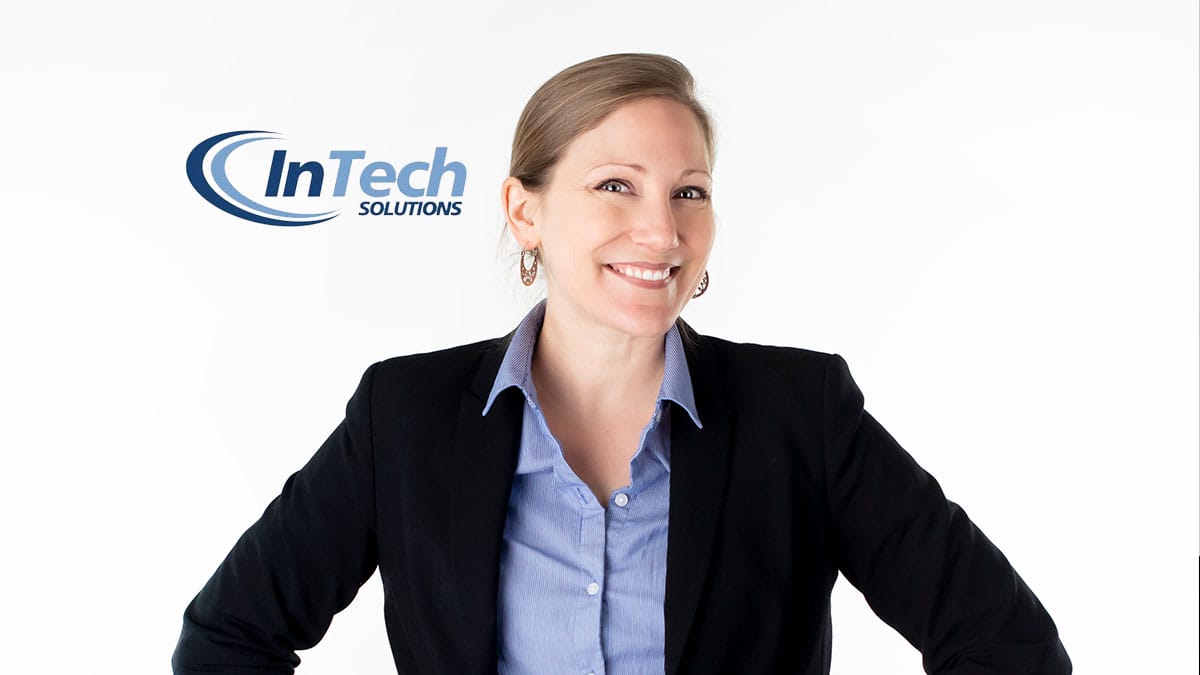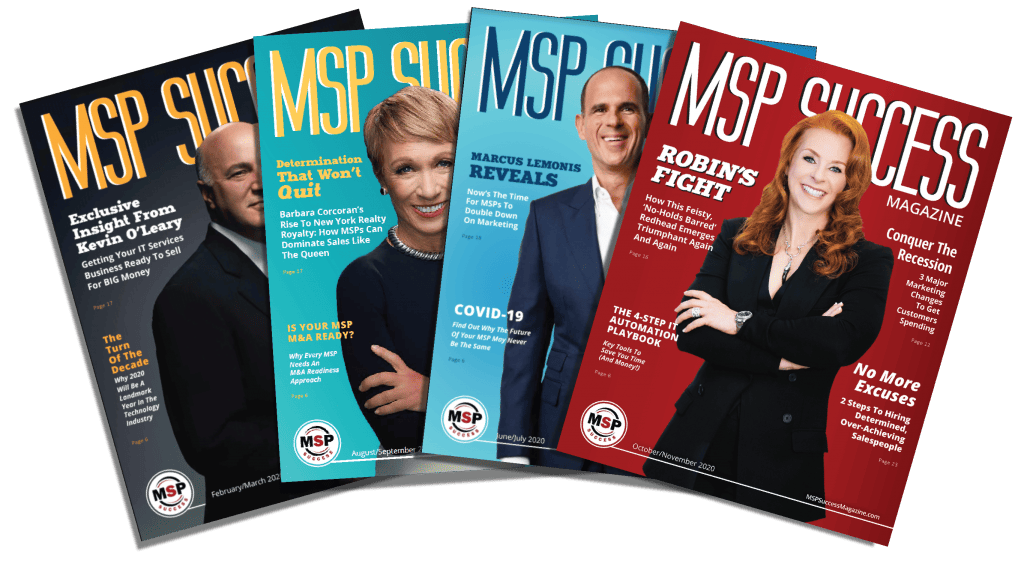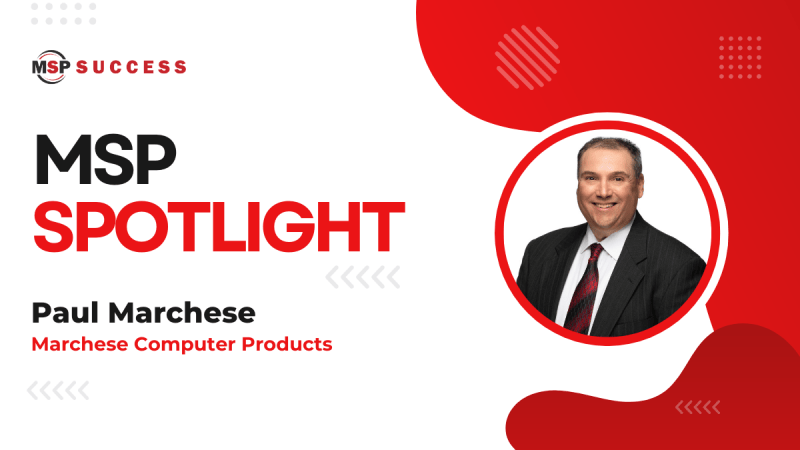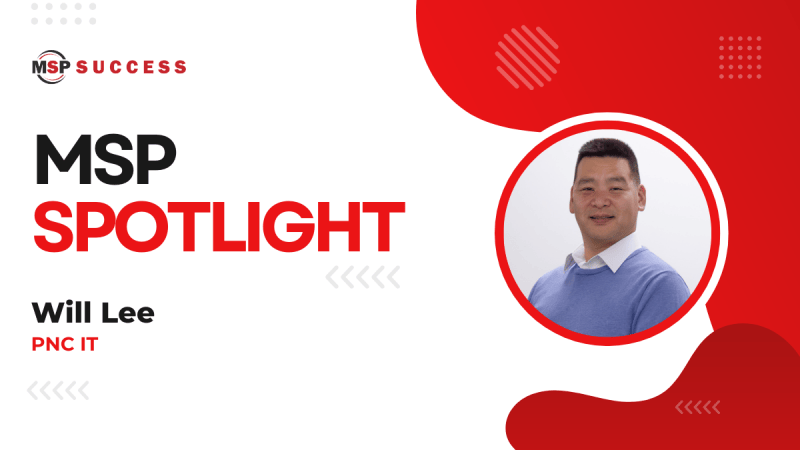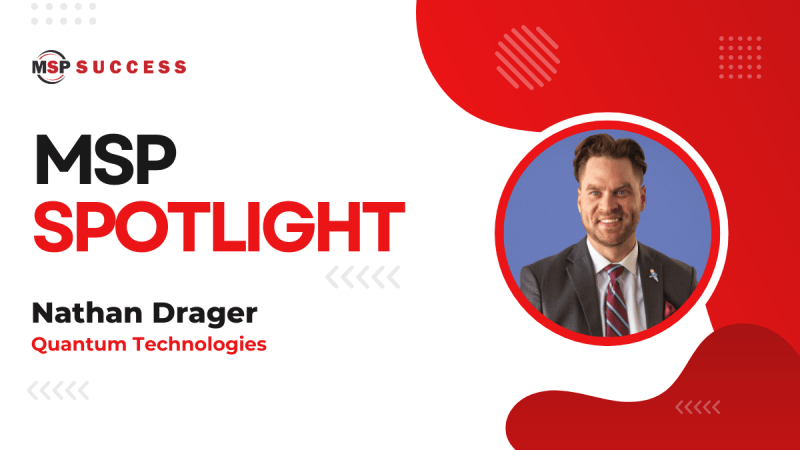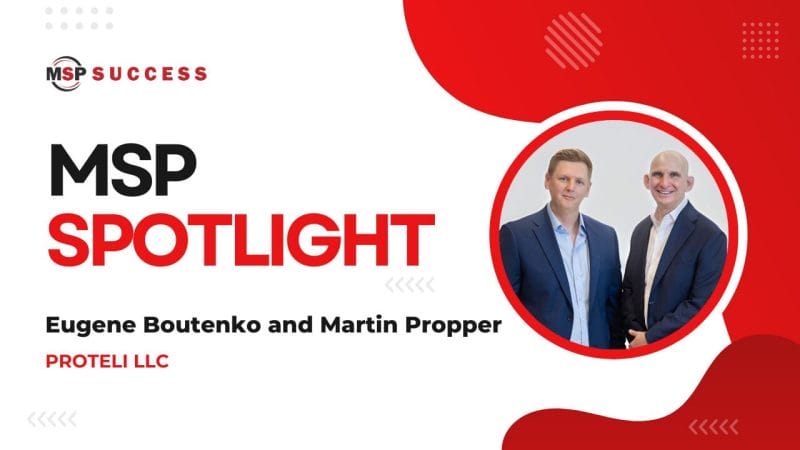- Company: InTech Solutions
- Founded: 2006
- Headquartered: Greensburg, PA
- Geographic Market: Greater Pittsburgh, PA
- YoY Percent of Growth: 23% in 2019 over 2018
- CEO: Leia Kupris Shilobod
What are the top three metrics that you use to measure your business and why?
There are so many metrics you can track, and many of them are important. The three easiest metrics to track — and the ones every MSP should always know — are monthly recurring revenue (MRR), net operating income as a percentage of sales, and top line revenue.
MRR is important because it’s guaranteed revenue each month. If you know what is walking in the door, you know you can pay your bills. It’s also the reason why subscription-based businesses can be sold for more money. It has become the business model of choice for a lot of organizations (think Adobe, Microsoft, Netflix, and Dollar Shave Club) because if you have a subscription model, you remove a big unknown — your monthly revenue — and can focus on other ways of strengthening your business.
We also track our net operating income as a percentage of sales. Healthy companies need to maintain at least 15% net operating income. If you go below that, you can still operate, but it’s not healthy. It’s a lot harder and more stressful for financially unhealthy companies to grow.
Even though it’s been said that “top line is for vanity, bottom line is for sanity,” it’s important to know what top-line revenue (gross sales) goals we want to hit. If we are maintaining a healthy net operating income, the top line helps us know how many team members we should have, and the yearly goal helps us know how many we need to recruit this year. Then you can start thinking about things like, “What role should these new team members be in to enable growth?” and “Where the heck are we going to put them?” Ha!
What is the top lesson you had to learn that allowed you to kick-start your business growth?
I had to believe in myself. I had to believe I am capable of anything. I like to recount a time when I was sitting with my peers and listening to Kevin O’Leary talk about the time he acquired a “small” $6-million MSP. There was an audible gasp from the audience because we were mostly under $2 million. “Small? Since when is a $6-million MSP small?” I thought. But then I considered, “Why does Kevin consider that company small? What’s the difference between Kevin O’Leary and me?” It’s not just that he has more money than me. If you gave me a ton of money, I’m not going to change. I’ll still think the same way and take the same actions. The belief systems we hold that create the actions (or inaction) are what put us where we are.
Just like Windows and iOS are operating systems, your belief system is the operating system of your life. You act within the confines of that operating system. If your beliefs are restricting you because you think it’s possible only for others or if you just dream and don’t really believe, then you’re going to continue to take the same actions and end up in the same place.
A poor belief/operating system will cause you to subconsciously take self-sabotaging actions, make you play small, or make you play to not lose instead of to win. The worst part is you won’t even realize it’s happening.
Once I started on the path of truly believing I could do anything, I starting to become a different person. And that different person is rapidly growing an amazing company where awesome people come to do meaningful work.
What would you say was the single “secret to your success” this past year?
We have always loved working with manufacturers, but in 2019, we really committed to the niche of supporting and consulting with manufacturers that are in the Department of Defense (DoD) supply chain. They have specific cybersecurity requirements, and we’ve gotten really good at delivering what they need to keep their contracts. By homing in on where we do best and on what we love to do, we are seeing a steady stream of leads. Plus, industry influencers are talking about us.
Committing to a niche or vertical is important. If you don’t have a singular focus, then you end up chasing a lot of opportunities. When your focus is fractured, you can’t execute well and you miss opportunities. Maybe you end up chasing money, but it’s not the right money, and it ends up costing you in the long term because it takes you away from serving your core customers.
It is scary to limit focus, especially when somebody shows up with cash in hand. But it was imperative for us. Committing to a focus allowed us to build industry-specific systems and programs that provide a lot of value.
What was the biggest challenge you had to overcome this past year related to either reaching that growth or as a result of that growth?
It was definitely recruitment. We only want to work with people who believe in our mission and Principles, don’t bring drama, and are fun. Our mission is to create an environment where awesome people come together to do meaningful work, grow personally and professionally, and believe in themselves. You come to InTech to grow and learn to believe in yourself. If you aren’t interested in growing, this will be soul-sucking for you.
We’ve found that a lot of people think this sounds really good, but they aren’t interested in our culture in reality. Although we coach extensively for team members to succeed, if they can’t align with the Principles, then they can’t stay. It’s too disruptive and too much of a distraction. It’s been very difficult to find the right fit.
Who would you say is the most impactful business leader or business thought-leader whose techniques or leadership style you either try to emulate, follow, or are influenced by, and why?
Verne Harnish. He is the founder of Gazelles Inc., an advisor, an author, and a growth coach. He works with companies that have over $1 million in revenue and double-digit growth year over year.
When I read his book “Mastering the Rockefeller Habits,” over 10 years ago, I was like, “Yes! This is basically a blueprint for how to build a thriving company.” Later he wrote “Scaling Up,” which I also highly recommend.
I loved his stuff, but I couldn’t figure out how to follow the blueprint in real life. So I avidly followed Verne, reading every single e-newsletter, researching the thought-leaders he recommends, and reading their books.
One of the thought-leaders he linked me with is Ray Dalio, founder of Bridgewater Associates and author of “Principles.” This book gave us the inspiration to create our own Principles, which are the core values of our company, and we truly do use those in all of our decision-making. It’s been absolutely game-changing.
What book would you recommend that other MSPs or SMBs trying to grow their business should read?
I already mentioned them, but I recommend “Mastering the Rockefeller Habits” and “Scaling Up” by Verne Harnish for your business blueprint and “Principles” by Ray Dalio to learn how to develop your culture.
In closing, is there any specific advice or “words of wisdom” that you would give to other MSPs looking to grow or build a successful exit for their business?
BE DIFFERENT! Too many people say they’re different because they “give good customer service.” Well, I hope you do. That means maybe you don’t suck. But it’s not a compelling reason to do business with you. Good customer service is not a differentiator; it’s a requirement to be in the game of business.
So, figure out what DOES make you different. Is it a special process you have because of the market you serve? Is there something you do that other organizations don’t?
Ask yourself what you do that is different and groundbreaking, then build everything you do around that differentiator. Build your processes around it and build your value around it so that you can quantitatively say how you’re bringing more value than the other guy. Do extensive training internally about why you’re different. Your people have to understand why you’re different, too, and they have to fanatically support it. Call your differentiator something fancy and tell all your clients and prospects about it. Otherwise, you’re just sitting in an echo chamber in a sales meeting saying, “But I’m different.”





